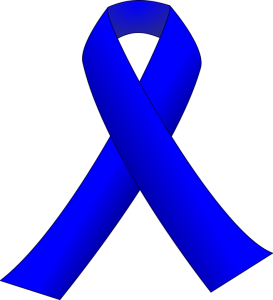Human Trafficking Awareness Month
JANUARY is Human Trafficking Awareness Month
During January, the Sexual Assault and Violence Education (SAVE) Team will hold events focused on awareness about human trafficking. Also, we'll let you know how YOU can be an empowered Zip and help show that at UA, we do not tolerate human trafficking. We also want you to know that if you have been impacted by human trafficking, there are resources on campus to support you.
Human trafficking involves the use of force, fraud, or coercion to obtain some type of labor or commercial sex act. Human trafficking does not have one face or stereotype. Victims can be any gender, race, age, socioeconomic status, etc. Ohio is unfortunately ranked as fifth among all states in total reported human trafficking cases.
UPCOMING EVENTS
- See our full list of events occurring throughout January.
- If you would like to get involved and help with any of our activities, please contact: uacasa14@gmail.com or kld67@uakron.edu.
RESOURCES
The University of Akron is committed to promoting a safe and non-discriminatory environment, which includes prohibiting human trafficking. If you or someone you know has been impacted by human trafficking, you can make a referral to the Gender-Based Misconduct and Title IX team.
Several confidential resources: Available on and off campus in this extensive list.
National Human Trafficking Hotline
National and Confidential Toll-Free Hotline to report trafficking or connect with anti-trafficking services, 24/7, available in 200 languages. Or text HELP to BeFree (233733) from 3 - 11 p.m.
Local FBI Office (Cleveland)
- Call 261-522-1400 or 216-443-6082 anytime
Counseling and Testing Center
Free and confidential psychological services for current students.
- Call 330-972-7082 to schedule a virtual appointment.
Hope and Healing Resource Center: Rape Crisis Center
Trauma-informed advocates provide confidential counseling, advocacy, and support groups to students 24/7. They also provide emergency rehousing services for those with immediate safety concerns.
- Call 330-434-7273 anytime
RAHAB Ministries
Offers concrete solutions to human trafficking by putting truth and love into action.
- Call 330-819-3326
Summit County Collaborative Against Human Trafficking
Works to increase our community’s knowledge on human trafficking and build a strong continuum of care for survivors to access trauma-informed services in Summit County.
Salvation Army
Provides ongoing care to those escaping the life of human trafficking. Along with immediate needs of shelter, transportation, food, and clothing, they address physical and psychological trauma through a variety of services.
- 330-762-8481
RED FLAGS AND SUPPORTING YOUR FELLOW ZIPS
We want to provide you with the proper tools so you can support your friends, loved ones, and fellow Zips this month and every month to follow.
Learn & identify:
Becoming familiar with the red flags, will help you to recognize and identify warning signs. Although anyone can be trafficked in any community, evidence suggests that people of color and LGBTQ+ people are more likely to be trafficked than other demographic groups. Human traffickers use a hope for strong romantic love, a family, or decent wages to target victims. They make promises aimed at addressing the needs of their target to impose control. Many survivors of human trafficking have been trafficked by romantic partners, including spouses, and by family members, including parents. Your friends or loved ones might be vulnerable to trafficking if they:
- Have an unstable living situation
- Have a family member who has a substance abuse issue
- Are addicted to drugs or alcohol
- Are runaways or were involved in the juvenile justice or foster care system
Here are a few situations that might raise concerns:
- A friend is newly showered with gifts or money
- A friend becomes involved in an overwhelming, fast-moving, romantic relationship (typically there is a large age difference or difference in financial status)
- A friend is developing a relationship which seems “too close” with someone they know only through social media
Reading stories of hope from survivors in Cleveland can also be beneficial to learn more about human trafficking and how you can support survivors. We also recommend heading over to Polaris Project to learn more about how human trafficking works, recognizing human trafficking, myths/facts/statistics, policy and legislation, and resources.
How to respond:
It is important to know how to respond if someone discloses to you. If a friend or someone you know confides in you that they are a survivor of human trafficking or are currently in a human trafficking situation, there are several simple but effective things you can do to support your friend:
- Listen without judgment
- Provide referrals to campus and/or community resources
- Self-care
Continue your support:
People in active trafficking situations do not always want help getting out. Every trafficking situation is unique. Fear, isolation, guilt, shame, misplaced loyalty, finances, and expert manipulation are among many factors that may keep a person from seeking help or identifying as a victim. You can still support your friend even if they do not want help getting out. Continue to be a support system and let them know that you are still there for them should they need you. Traffickers often will try to isolate a victim so that even if they could safely leave, they would have no one to turn to for support.
For any questions regarding Human Trafficking Awareness Month
Contact Kelsea Daniluk at kld67@uakron.edu or at 330-972-7904
See events Go to S.A.V.E. homepage Campus & Title IX resources
